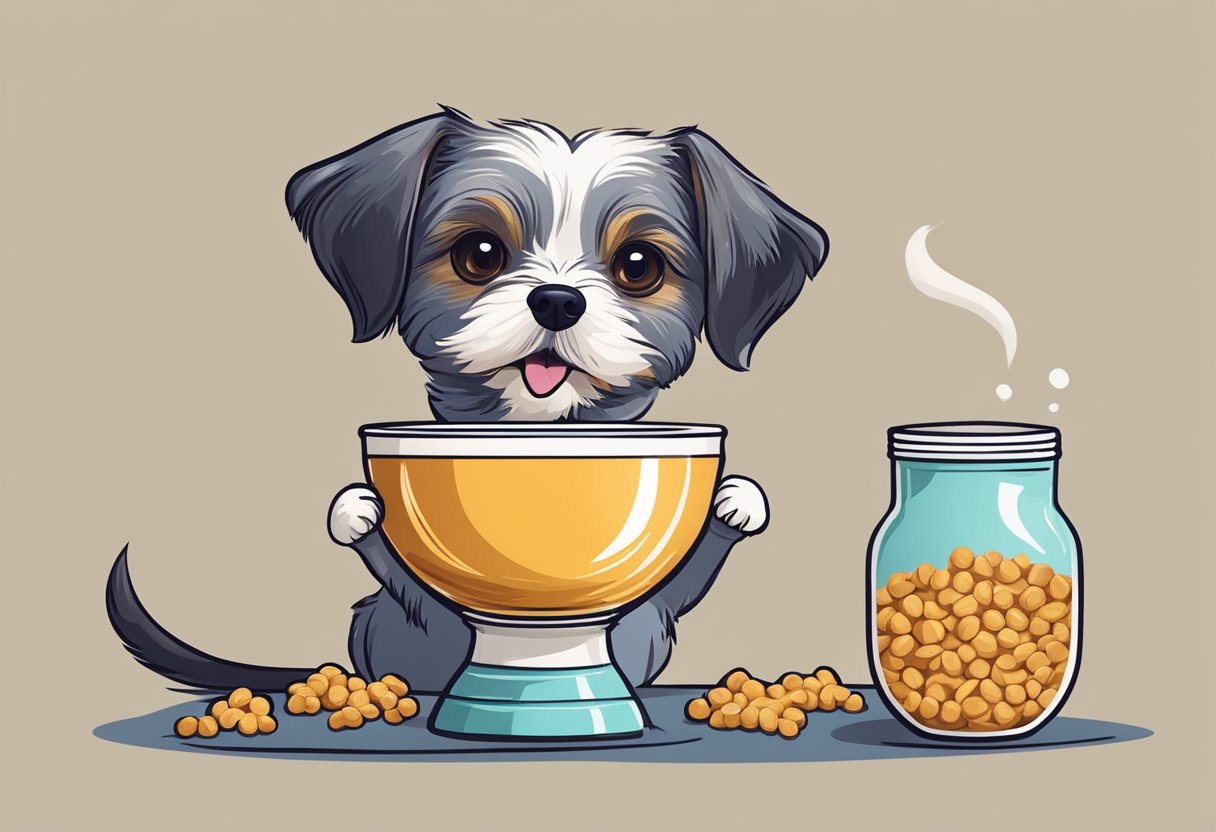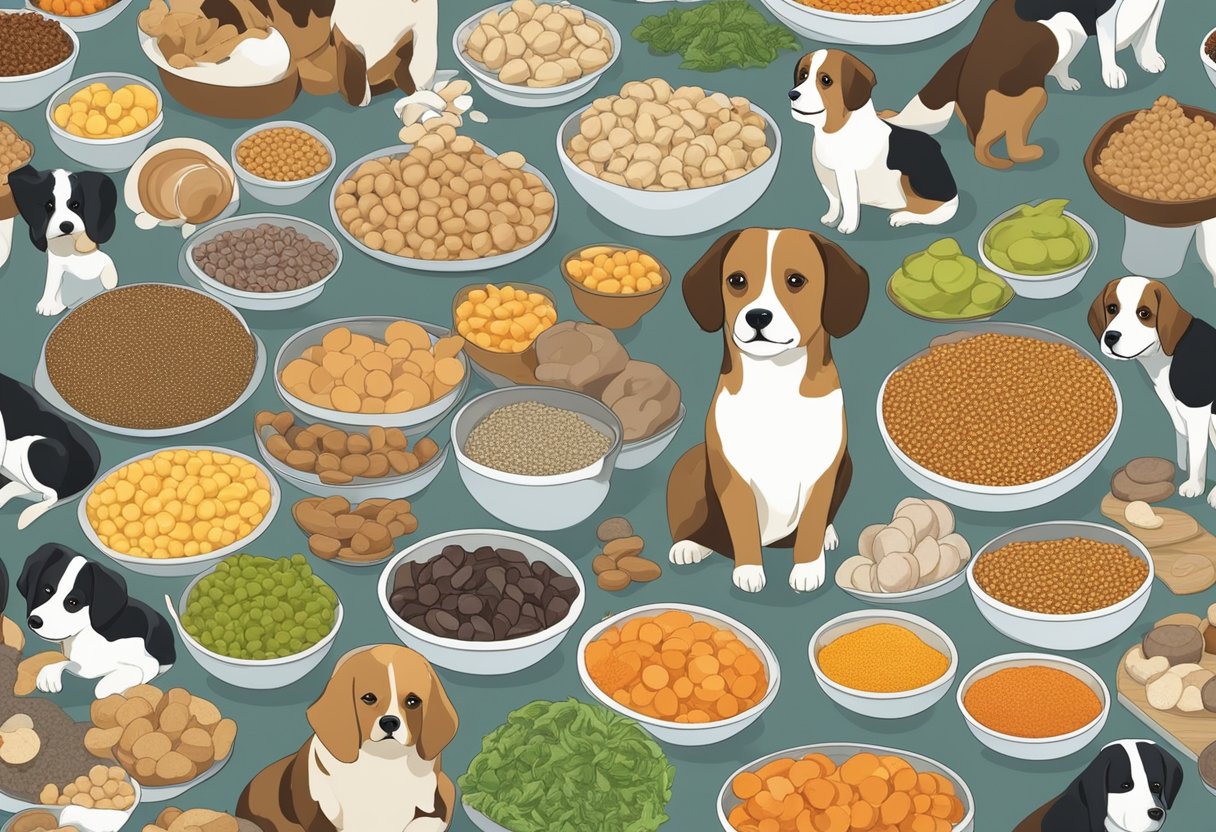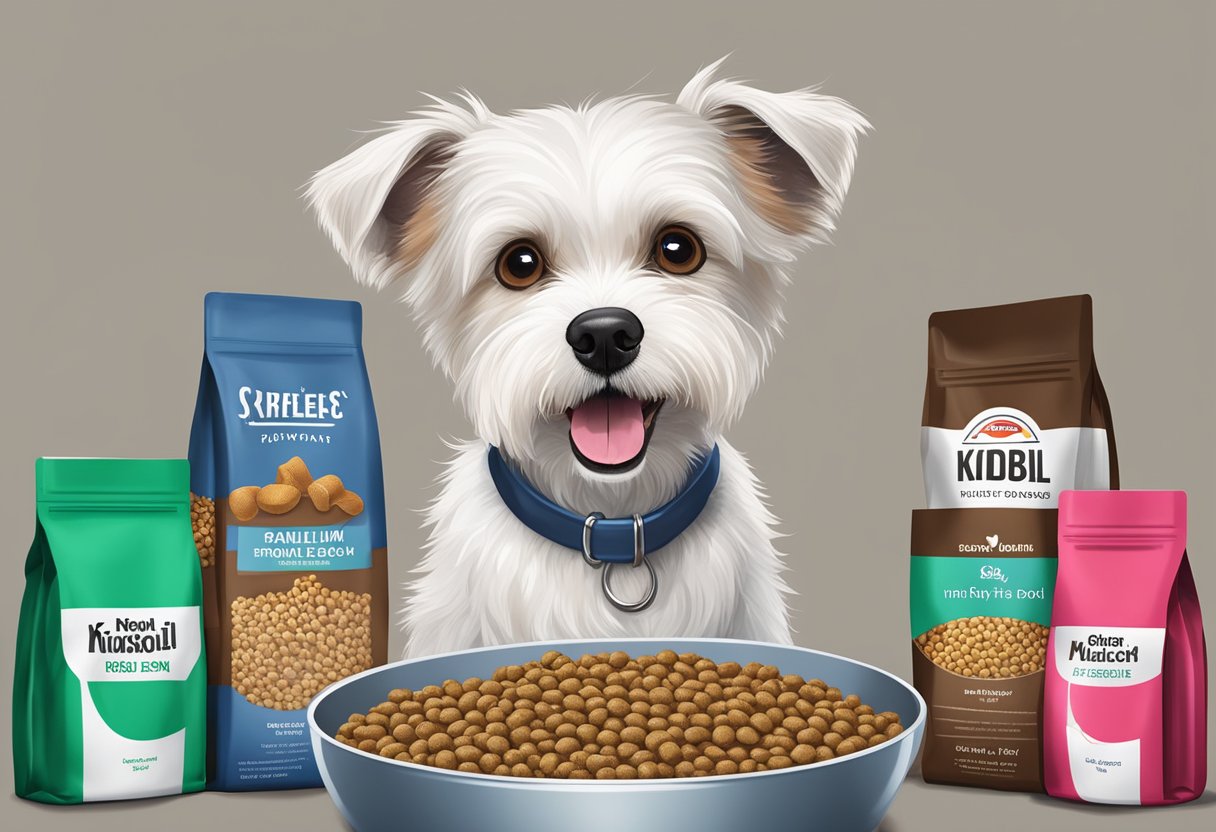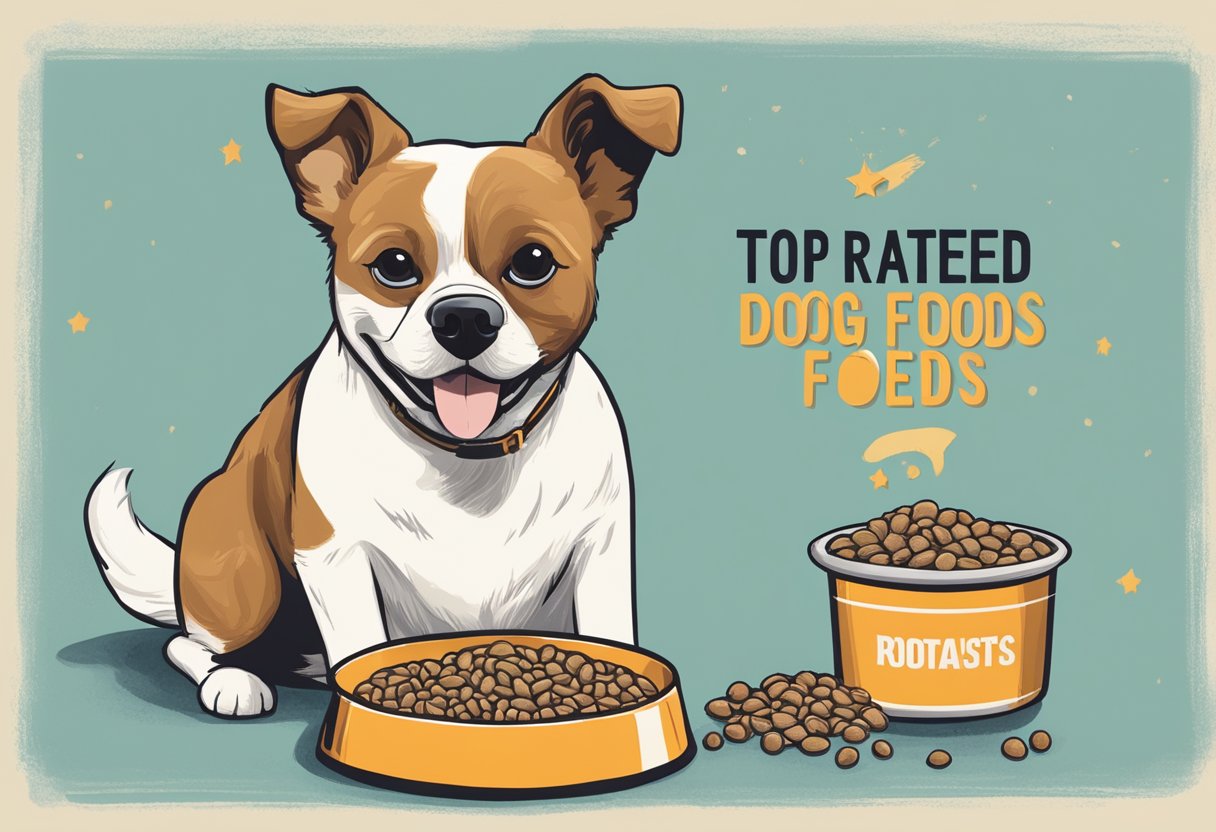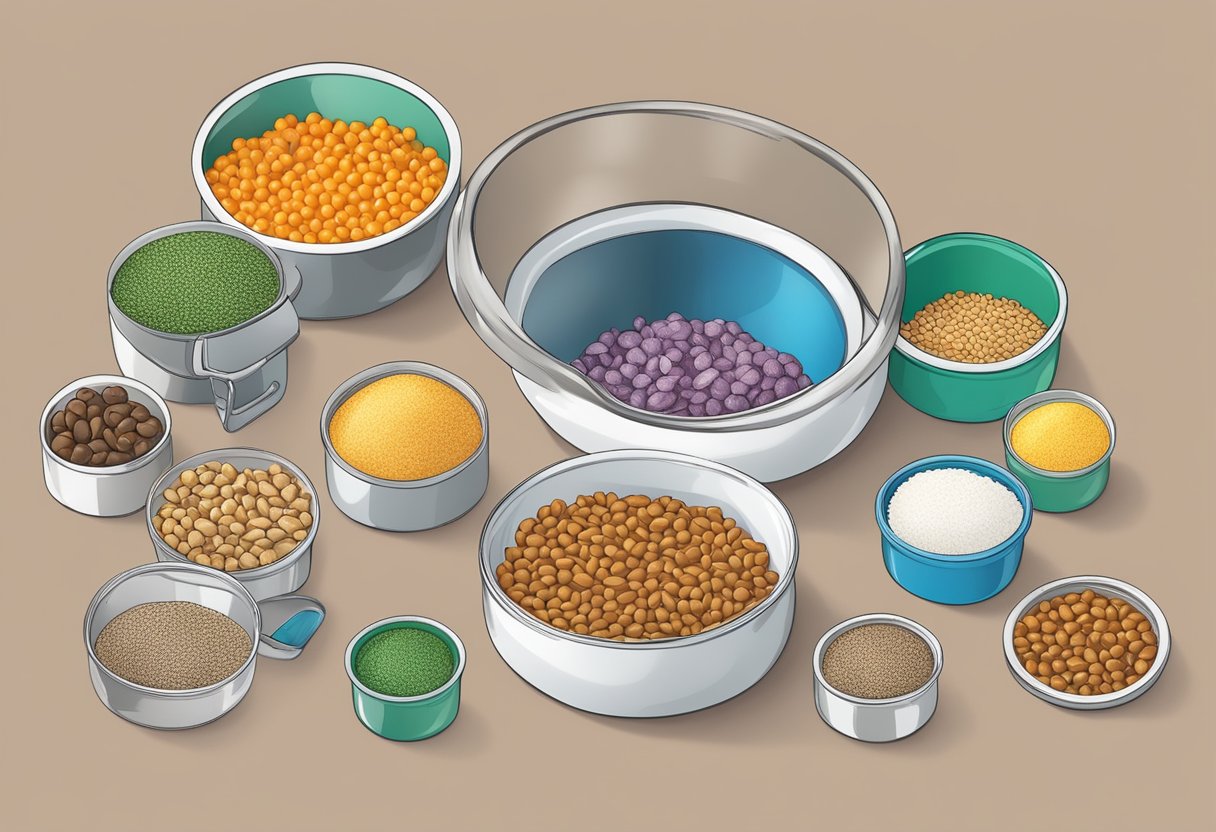Best Dog Food for Small Dogs: Top Picks for Optimal Nutrition
Small dogs are a popular choice for pet owners, and it’s important to choose the right dog food to keep them healthy and happy. Small dogs have unique nutritional needs, and finding the best dog food for them can be challenging. With so many options available, it can be difficult to know where to start.
When it comes to choosing the best dog food for small dogs, there are several factors to consider. The first is the size of the kibble. Small dogs have smaller mouths and teeth, so they need smaller kibble that is easy to chew and digest. Another important factor is the nutritional content of the dog food. Small dogs have different nutritional needs than larger dogs, and they require a diet that is high in protein, fat, and carbohydrates to keep them healthy and active. It’s also important to consider any health issues your small dog may have, such as allergies or digestive problems, when choosing a dog food.
Importance of Proper Nutrition for Small Dogs
Small dogs have different nutritional needs than their larger counterparts. Due to their small size, they require more calories per pound of body weight to maintain their energy levels. In addition, small dogs have a faster metabolism, which means they need to eat more often than larger dogs. Therefore, it is important to choose the right food for small dogs to ensure they get the nutrients they need to maintain their health.
Small breed dogs are also prone to dental problems, so it is important to choose a food that promotes dental health. Look for foods that contain ingredients that help to clean teeth, such as crunchy kibble or dental chews. Additionally, small dogs are more prone to obesity, which can lead to a range of health problems. Therefore, it is important to choose a food that is low in fat and calories.
When choosing a food for small dogs, it is important to consider their age, activity level, and any health issues they may have. Puppies have different nutritional needs than adult dogs, and senior dogs may require a different diet altogether. It is important to choose a food that is appropriate for their life stage.
In summary, proper nutrition is essential for the health and well-being of small dogs. When choosing a food for your small dog, it is important to consider their unique nutritional needs and choose a food that is appropriate for their age, activity level, and any health issues they may have. With the right diet, small dogs can live long and healthy lives.
Key Nutritional Needs for Small Breeds
Small breed dogs have unique nutritional needs that differ from larger breeds. As a result, it is important to choose a dog food that is specifically formulated for small breeds. In this section, we will discuss the key nutritional needs of small breeds and what to look for in a dog food.
Protein Content
Protein is an essential nutrient for dogs, and small breeds require a higher percentage of protein in their diet than larger breeds. According to the American Kennel Club (AKC), small breeds require a minimum of 22% protein in their diet to maintain optimal health. However, some small breeds may require even more protein depending on their activity level and age.
When choosing a dog food for small breeds, it is important to look for one that has a high-quality source of protein as the first ingredient. Good sources of protein include chicken, turkey, beef, and fish. Additionally, some dog foods may include plant-based sources of protein such as peas and lentils.
Fat and Fatty Acids
Fat is another essential nutrient for dogs, and small breeds require a higher percentage of fat in their diet than larger breeds. According to the AKC, small breeds require a minimum of 8% fat in their diet to maintain optimal health. However, some small breeds may require even more fat depending on their activity level and age.
In addition to fat, small breeds require a good source of omega-3 and omega-6 fatty acids in their diet. These fatty acids are important for maintaining healthy skin and coat, as well as supporting the immune system. Good sources of omega-3 and omega-6 fatty acids include fish oil, flaxseed, and canola oil.
Carbohydrates and Fiber
While dogs are primarily carnivores, they also require carbohydrates and fiber in their diet. Carbohydrates provide energy, while fiber helps with digestion and can help regulate blood sugar levels.
When choosing a dog food for small breeds, it is important to look for one that has a good source of carbohydrates and fiber. Good sources of carbohydrates include whole grains, such as brown rice and oatmeal, as well as fruits and vegetables. Good sources of fiber include beet pulp, chicory root, and pumpkin.
Vitamins and Minerals
Small breed dogs require a wide range of vitamins and minerals to maintain optimal health. When choosing a dog food for small breeds, it is important to look for one that is complete and balanced, meaning it contains all of the essential vitamins and minerals that your dog needs.
Some important vitamins and minerals for small breeds include vitamin A, vitamin E, vitamin C, calcium, and phosphorus. These vitamins and minerals are important for maintaining healthy bones, teeth, and muscles, as well as supporting the immune system.
In summary, small breed dogs have unique nutritional needs that differ from larger breeds. When choosing a dog food for small breeds, it is important to look for one that has a high-quality source of protein, a good source of fat and fatty acids, a good source of carbohydrates and fiber, and is complete and balanced with all of the essential vitamins and minerals that your dog needs.
Types of Dog Food
When it comes to feeding small dogs, there are several types of dog food to choose from. Each type of food has its own advantages and disadvantages, and it’s important to choose the one that best suits your dog’s needs.
Dry Kibble
Dry kibble is the most common type of dog food available. It’s easy to store, has a long shelf life, and is generally less expensive than other types of dog food. Dry kibble is also good for a dog’s dental health, as the hard texture helps to remove plaque and tartar from their teeth. However, some dry kibble can be high in carbohydrates and low in protein, so it’s important to choose a brand that is specifically formulated for small dogs.
Wet Food
Wet food is a good option for small dogs who have trouble chewing or need to gain weight. It’s also a good choice for dogs who need to stay hydrated, as wet food contains more moisture than dry kibble. However, wet food can be more expensive than dry kibble, and it has a shorter shelf life once opened. It’s also important to choose a high-quality brand of wet food that is specifically formulated for small dogs.
Raw and Fresh Options
Raw and fresh food options, such as raw meat, cooked meat, and fresh vegetables, are becoming more popular among dog owners. These types of foods can be more expensive than dry kibble or wet food, but they offer several benefits. Raw and fresh food options are generally higher in protein and lower in carbohydrates than other types of dog food. They also do not contain any artificial preservatives, colors, or flavors. However, it’s important to make sure that any raw or fresh food is properly prepared and balanced to provide all of the nutrients that a small dog needs. It’s also important to consult with a veterinarian before switching to a raw or fresh food diet.
Overall, the best type of dog food for a small dog depends on their individual needs and preferences. It’s important to choose a high-quality brand of dog food that is specifically formulated for small dogs, and to consult with a veterinarian if you have any questions or concerns about your dog’s diet.
Top-Rated Dog Foods for Small Breeds
Small breed dogs have unique nutritional requirements that must be met to maintain their health and well-being. Finding the right dog food for your small breed can be a daunting task, but with the right information, it can be a breeze. Here are some of the top-rated dog foods for small breeds that are sure to keep your furry friend happy and healthy.
1. Blue Buffalo Life Protection Formula Small Breed Dog Food
Blue Buffalo Life Protection Formula Small Breed Dog Food is specially formulated to meet the nutritional needs of small breed dogs. It contains high-quality protein from real chicken to support muscle maintenance and repair. The formula also includes wholesome grains, fruits, and vegetables to provide essential vitamins, minerals, and antioxidants. This dog food is free from artificial preservatives, colors, and flavors, making it a healthy and natural choice for your small breed.
2. Royal Canin Small Breed Adult Dry Dog Food
Royal Canin Small Breed Adult Dry Dog Food is designed to meet the unique nutritional needs of small breed dogs. It contains a precise blend of proteins, fats, and carbohydrates to support your dog’s energy needs. The formula also includes antioxidants to support a healthy immune system and omega-3 fatty acids to promote healthy skin and coat. This dog food is easy to digest and contains a combination of fibers to support healthy digestion.
3. Wellness Complete Health Small Breed Adult Turkey and Oatmeal Recipe
Wellness Complete Health Small Breed Adult Turkey and Oatmeal Recipe is a nutritious and delicious dog food that is specially formulated for small breed dogs. It contains high-quality protein from real turkey to support muscle maintenance and repair. The formula also includes wholesome grains, fruits, and vegetables to provide essential vitamins, minerals, and antioxidants. This dog food is free from artificial preservatives, colors, and flavors, making it a healthy and natural choice for your small breed.
Choosing the right dog food for your small breed can be a challenge, but with these top-rated options, you can be sure that your furry friend is getting the nutrition they need to thrive.
Ingredients to Avoid
When it comes to choosing the right dog food for small dogs, it’s important to pay close attention to the ingredients list. Some ingredients can be harmful or even toxic to your furry friend. Here are some ingredients to avoid:
Artificial Additives
Artificial additives such as carrageenan, BHA, BHT, ethoxyquin, and propylene glycol should be avoided. These additives are often used to preserve the food and enhance its flavor, but they have been linked to various health issues in dogs. For example, BHA and BHT have been linked to cancer in some studies 1.
Fillers and By-Products
Fillers and by-products such as corn, soy, and meat meal should also be avoided. These ingredients are often used as a cheap way to add bulk to the food, but they provide little nutritional value to your dog. Instead, look for dog food that lists meat or meat meal as the first ingredient 2.
Common Allergens
Some dogs may be allergic to certain ingredients, so it’s important to be aware of common allergens such as wheat, dairy, and chicken. If your dog has a food allergy, it can cause symptoms such as itching, vomiting, and diarrhea. To avoid these issues, look for dog food that is specifically formulated for dogs with food sensitivities 3.
By avoiding these ingredients, you can ensure that your small dog is getting the nutrients they need without any harmful additives or fillers. Always read the ingredients list carefully and consult with your veterinarian if you have any questions or concerns.
Feeding Guidelines for Small Dogs
Feeding small dogs requires careful consideration of their unique nutritional needs. Small dogs have a faster metabolism and higher energy levels than larger breeds, so they require more calories per pound of body weight. To ensure that small dogs receive the necessary nutrients, owners should choose high-quality dog food that is specifically formulated for small breeds.
When selecting dog food for small dogs, it is important to look for products that contain high-quality protein sources such as chicken, fish, or lamb. These proteins are essential for building and maintaining muscle mass, which is particularly important for small dogs that may be prone to muscle wasting. In addition to protein, small dogs require a balanced diet that includes carbohydrates, fats, vitamins, and minerals.
Owners should also pay attention to the calorie content of their dog’s food. Small dogs need approximately 40 calories per pound of body weight, so it is important to choose a food that provides the appropriate amount of calories for their size. Overfeeding small dogs can lead to obesity, which can cause a range of health problems such as joint pain, heart disease, and diabetes.
To help owners determine the appropriate amount of food to feed their small dogs, many dog food brands provide feeding guidelines on their packaging. These guidelines typically provide a range of recommended serving sizes based on the dog’s weight and activity level. Owners should also monitor their dog’s body condition and adjust their food intake accordingly.
In addition to choosing high-quality dog food, owners can supplement their small dog’s diet with healthy treats such as carrots, green beans, and apple slices. These treats provide additional nutrients and fiber without adding excessive calories to the dog’s diet. However, owners should avoid giving their small dogs table scraps or human food, as these can be high in fat, salt, and other unhealthy ingredients.
Overall, feeding small dogs requires careful attention to their unique nutritional needs. By choosing high-quality dog food, monitoring their calorie intake, and supplementing their diet with healthy treats, owners can help ensure that their small dogs remain healthy and happy for years to come.
